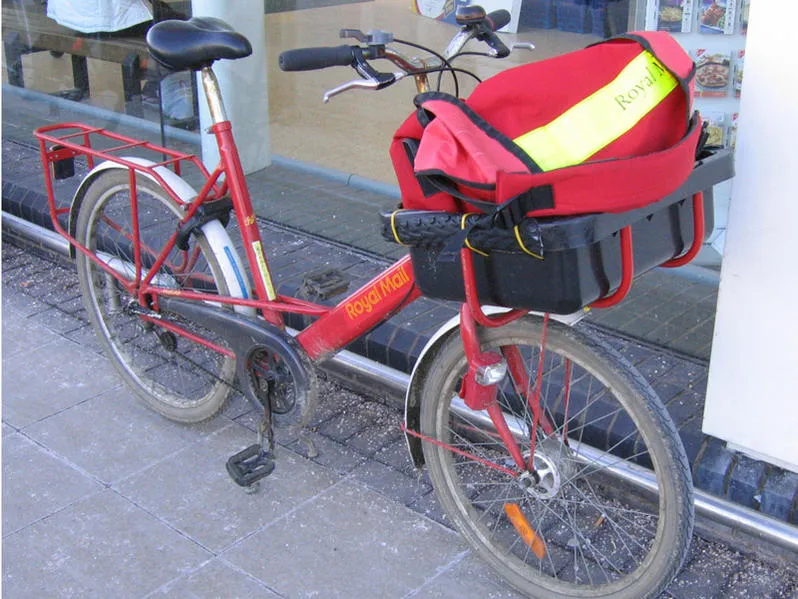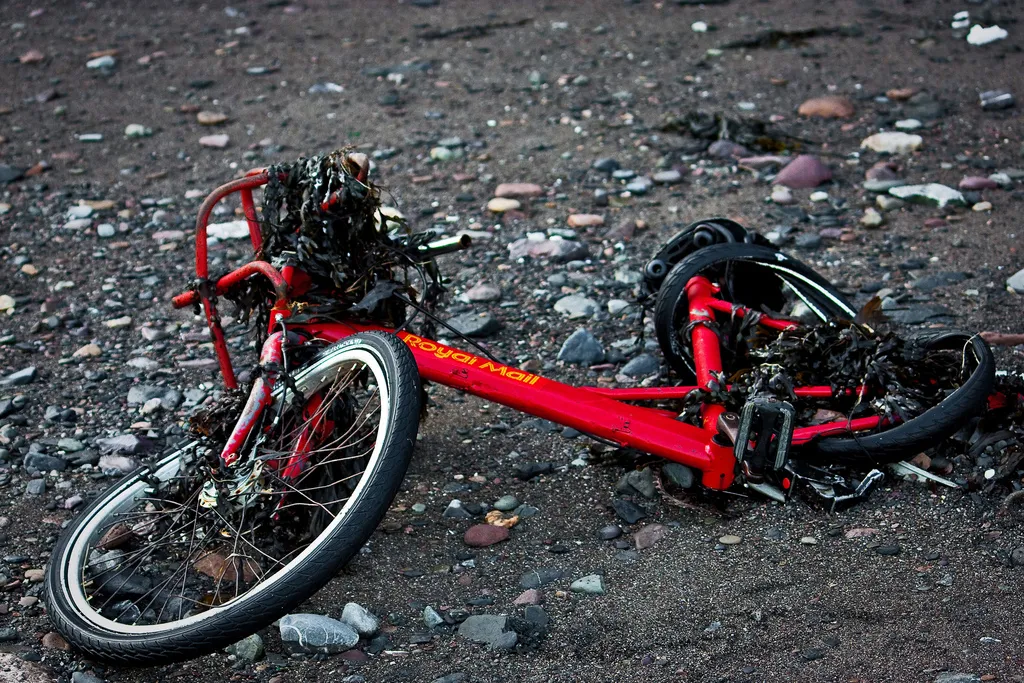The UK's postal service, Royal Mail, have not only recently confirmed the scrapping of the majority of their 24,000 strong fleet of post office bicycles, but outgoing chief executive Adam Crozier appears to put the decision, in part, down to the safety risks associated with bikes.
An exchange in the House of Lords on 29 March quotes a letter from Crozier to Lord Berkeley which says: "These bicycles pose the wider safety risk associated with busy street networks, where the rider is exposed to greater risk than other vehicle users."
Previous statements from Royal Mail indicated efficiency savings were behind the move. However, further comments from Crozier reiterated this motivation: "We expect to see a reduction in the number of delivery accidents as a result of our rollout of the new delivery technology, as a substantial proportion of accidents are linked to the use of bicycles on busy road networks."
On Royal Mail's own website, bicycle accidents come in fifth behind:
- Slips, trips and falls
- Animal attacks
- Stepping on/striking against something
- Lifting and handling
Lord Berkeley also asked if the Government had made a study of the impact bike scrapping would have on Royal Mail's CO2 emissions. None has been made, he was informed.
Royal Mail plan to replace the vast majority of bike deliveries with a system using diesel vans and postal workers equipped with trolleys so that all deliveries can be made without returning to a delivery office. Currently, deliveries by bike may need topping up part way through. That means that rather than being used on a quarter of delivery rounds – as they are currently – the postal bike fleet will shrink from 24,000 to around 500 bikes.

The Royal Mail Pashley Mailstar
The bikes, known as Mailstars, have been made in the UK by Pashley since the 1970s. A spokesman for Pashley told BikeRadar: "Royal Mail have been a valued customer of Pashley for over 35 years, so the recent news is understandably sad but life goes on. Thankfully, an increasing number of businesses worldwide are turning to our work bikes for use in delivering post, packages and food in city and urban environments. The Mailstar is based on Pashley's Pronto work bike which will continue to be made and sold."
Royal Mail had previous plans to replace standard delivery bikes with electric bikes and trials were held back in 2006, but these came to nought. It is thought the new trolleys (some battery powered) will be made in China.
Postal unions believe the phasing out of bikes could herald even greater changes to the postal system, namely the end of each neighbourhood having its own dedicated postman and the closure and sale of many local delivery offices, with the new van and trolley system being operated from a smaller number of larger central offices.
A spokesman for the Communication Workers Union said: "Job losses and office closures will be a very real threat. Once deliveries are centralised, there will be no need for so many local offices."
It looks like the end of posties' bikes will ultimately be bad news for bike recycling charities too. The Environmental Transport Association's website says that the charity Re-Cycle – who recondition unwanted bikes and ship them to Africa – "is expecting to receive a flood of bikes over the next two years, as the Royal Mail fleet is broken up, but it will then lose its previously regular supply of strong, reliable bikes so favoured by its African partners".
Royal Mail have donated more than 12,000 bikes to Re-Cycle since 1997. It ships them to Ghana, Liberia, Namibia and South Africa.
